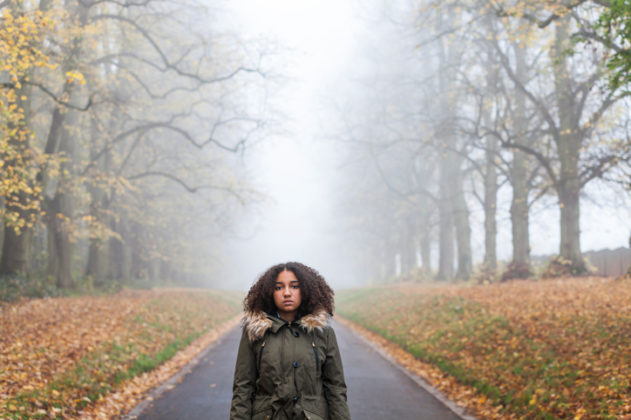There’s a seemingly endless supply of sympathy for children, like my daughter, who are victims of sexual abuse. But there is a shocking lack of sympathy for the consequences of this abuse on these kids as they age.
If parenting was like any other job, my experience as a survivor of childhood sexual abuse would make me the ideal parent for my own daughter. Like me, she was victimized as a young girl by her primary father figure. But equating parenting to the workforce is never an apt comparison, and it’s even less applicable to myself and my now-teenage daughter. I should be the one who knows how to help her, but no amount of understanding from me will change how she perceives the world.
My daughter isn’t very different from myself at her age. She’s 17 years old now, angry at the world, and afraid to admit the parts of herself that feel broken or damaged. She insists angrily that what was done to her won’t break her, too defensive to see the ways in which it already has. I like to think that she’ll make different choices than I did — and stop running from her broken parts long before she reaches her 30s — but I often fear she won’t.
There are a thousand ways in which my daughter is already stronger than I was. She’s unabashedly herself — whether by wearing ridiculous onesies to school or becoming the high school football team’s only girl — and she has a laser focus on what she wants from her life. She knows who she is and what she wants at 17 in a way that took me decades to discover about myself. It is those things that sometimes fool me and make me believe she can escape the damage of abuse. But I know the wounds are deep and raw, still waiting to heal. And there’s no way to heal without going through those wounds, no matter how hard she or I might try.
I recently came across a study that examined how childhood abuse negatively impacts teen behavior. The study, published in the Journal of Child Psychology and Psychiatry, detailed the connection between impaired associative-learning capacities in teens and instances of early childhood abuse. To put it simply, teens who had been abused as children were less able to understand how their own behavior elicited positive or negative responses from others.
“The participants who had been exposed to early childhood abuse were less able than their peers to correctly learn which stimuli were likely to result in reward, even after repeated feedback,” said Jamie Hanson, one of the study’s co-authors, in a statement. “In life we are often given mixed or little to no feedback from our significant others, bosses, parents, and other important people in our lives. We have to be able to figure out what might be the best thing to do next.”
Hanson and his colleagues also found that the teens who had been abused as younger children struggled to identify how to get positive feedback from others. Plus, they were pessimistic about the odds of positive outcomes when compared to teens who haven’t been abused. Taken as a whole, these findings suggest a link between childhood abuse and the aggressive and disruptive behaviors that often plague abused children well into their teens.
When I read this study, it was like a lightbulb went off. My daughter is a smart girl, yet I’ve often struggled to convey what seems like simple cause and effect. Time after time, she would do something that led to negative consequences and each time she seemed as surprised as the first. Instead of considering how her own behavior led to those consequences, she got angry and claimed the world (or I, or both) was out to get her. Teenagers aren’t always the most reasonable people, but I have two other teens and I knew this was different. I just couldn’t understand why.
The study also helped me to better understand my own teen years, 20 years later. It gave me more insight into why I made some of the mistakes I did, and why I seemed slower than my friends to learn from my mistakes. It provided some of the healing I’d been searching for, and a better framework for understanding myself and my daughter.
But, of course, science isn’t everything. It certainly doesn’t give me a road-map for parenting my daughter. No matter how much I understand her, it doesn’t change the challenges she’s facing. If anything, all it did was give me permission to relax and let her make her own mistakes, without feeling so compelled to show her a better way. Maybe she, too, will run like hell from the idea of being damaged by the actions of others, and maybe it will delay her healing for as long as it did my own. But even so, she has a lifetime to find her own way to healing, and as time goes on I have come to see that her healing, much like her own life, belongs to her — not me.
There’s a seemingly endless supply of sympathy for children, like my daughter, who are victims of sexual abuse. But there is a shocking lack of sympathy for the consequences of this abuse on these kids as they age. No one is very interested in why my daughter began struggling with aggressive outbursts or attending school regularly, and it’s been left up to me to control what is more likely to be deemed bad parenting than the effects of childhood abuse.
Yet, knowing what I know now, it’s hard not to see how similarly my own childhood abuse impacted me. And to believe that, with love and time, my daughter will find her own way to healing.
Jody Allard is a former techie-turned-freelance-writer living in Seattle. She can be reached through her website, on Twitter or via her Facebook page.
Other Links:

